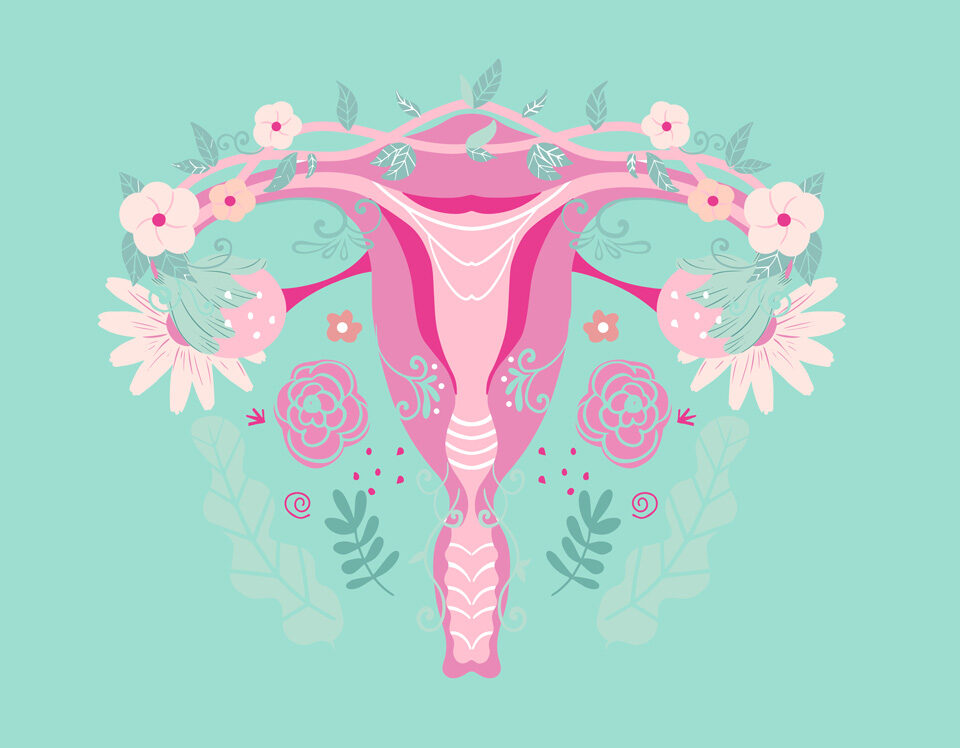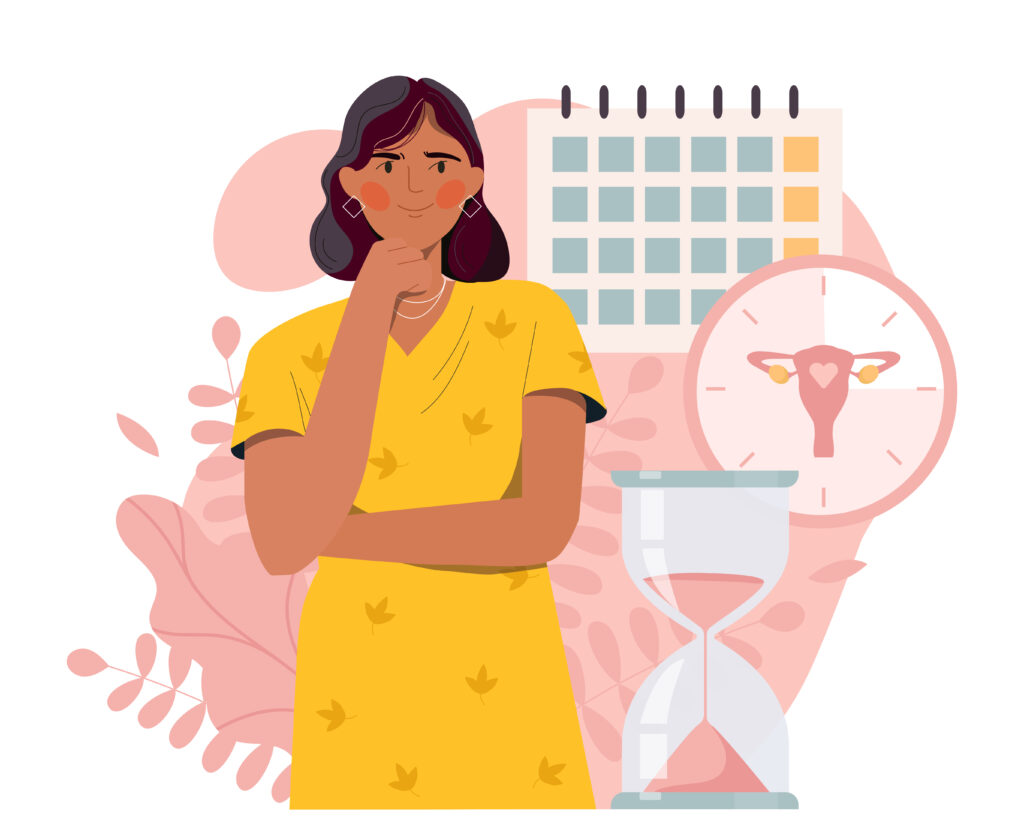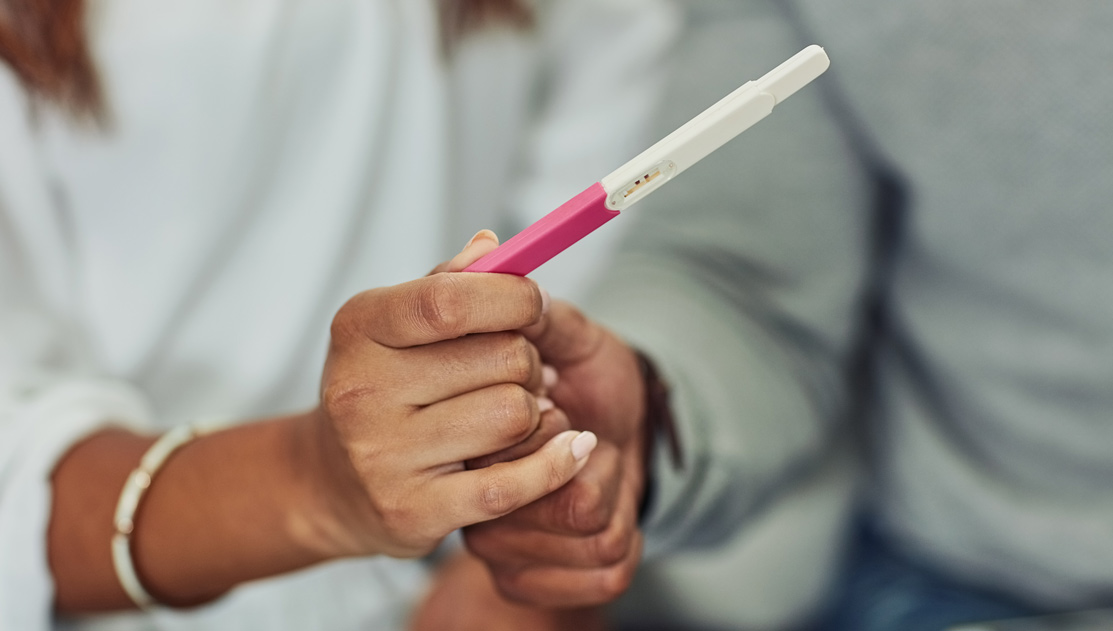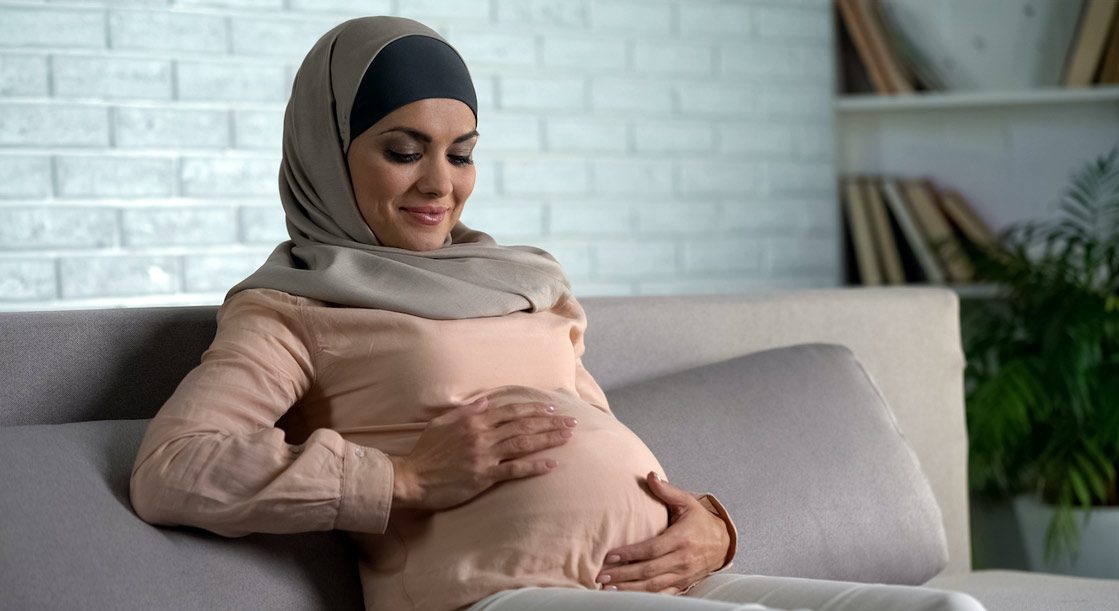Polycystic ovary syndrome (PCOS) and endometriosis are incredibly common.
According to the World Health Organisation (WHO), PCOS affects between six to 13% of reproductive-aged women, while endometriosis is thought to impact 10% of women globally. Both conditions affect the gynaecological organs, and their symptoms can include painful abdominal cramps, irregular bleeding and infertility – in fact, PCOS is one of the leading causes of infertility in women. Despite this, there is no cure for either condition. However, there are steps that women may consider to preserve their fertility, depending on individual circumstances.
With awareness of both PCOS and endometriosis increasing thanks to celebrity dialogue, charity campaigns and media interest, more women than ever before are recognising the symptoms and seeking diagnoses. This has also led to increased interest in fertility preservation, namely egg freezing.
Dr Amin Gorgy, fertility consultant and co-director at The Fertility & Gynaecology Academy, says, “Egg freezing can offer peace of mind for women with PCOS and endometriosis – depending on their age, symptoms and future fertility plans – as this procedure allows them to store their eggs for use at a later date. Once a woman is ready to use her eggs, we can perform Intracytoplasmic Sperm Injection (ICSI) using her partner’s sperm or a donor’s sperm to create an embryo, and begin her path towards becoming a parent. However, it’s important to remember that while PCOS is often associated with a high ovarian reserve, this does not protect against the age-related decline in egg quality. Timing is key when it comes to fertility preservation and each patient should be individually assessed.”
In this article, we explore the relationship between PCOS, endometriosis and infertility; what to consider if you’re thinking about egg freezing if you have either condition; and what the process entails.
What Are PCOS And Endometriosis?
PCOS and endometriosis are two common, but very different conditions that affect the female reproductive system. Both can impact fertility, but they have distinct characteristics and treatments.
PCOS
PCOS is a hormonal condition where the ovaries may not regularly release eggs (ovulate), therefore making it difficult to get pregnant. It is often linked to an imbalance in reproductive hormones, particularly higher levels of androgens (often referred to as “male” hormones, though both sexes both produce them), which can further disrupt fertility. In addition, fluid-filled sacs containing immature eggs can develop in the ovaries, interfering with ovulation.
Common symptoms of PCOS include:
- Irregular or absent periods
- Painful abdominal cramps
- Infertility
- Acne or oily skin
- Excess hair growth (especially on the face, chest, limbs and back)
- Weight gain or difficulty losing weight
- Thinning hair on the scalp
- Multiple small follicles (“cysts”) viewed on an ultrasound
The cause of PCOS is not exactly known, but it is thought to involve a combination of genetic and lifestyle factors, insulin resistance and hormonal imbalance. The condition has no cure, but it can be managed with lifestyle changes (including diet, exercise and stress management); hormonal contraception to regulate periods; and medication for insulin resistance (for example, metformin).
Endometriosis
Endometriosis occurs when tissue similar to that found in the lining of the womb (endometrium) grows in other places, such as the ovaries, fallopian tubes, bladder and bowel. This tissue responds to the menstrual cycle each month, but has no way to exit the body. As such, it causes inflammation and scarring, and can cause hormone disruption – all factors which can contribute to infertility.
Common symptoms of endometriosis include:
- Chronic pelvic or lower back pain, especially during periods
- Pain during or after sex
- Heavy or irregular periods
- Fatigue
- Bloating or bowel issues (often mistaken for irritable bowel syndrome (IBS))
The cause of endometriosis is still being studied, but potential links include genetics, immune dysfunction and retrograde menstruation (where period blood flows back through the fallopian tubes into the pelvis). Like PCOS, there is no cure for endometriosis, but management includes pain relief; hormonal contraception; laparoscopic surgery to remove endometrial tissue; and lifestyle support such as nutrition and physiotherapy.
How Does Egg Freezing Help Women With PCOS And Endometriosis?
Egg freezing can be a useful option for some women with PCOS and endometriosis who are concerned about their future fertility, depending on factors such as age, symptoms and personal plans.
If you have been diagnosed with either of these conditions in your teens or twenties, you may face uncertainty about your reproductive future, whether due to the potential progression of endometriosis or irregular ovulation linked to PCOS. In some cases, egg freezing can offer the opportunity to store eggs at a younger age, when egg quality is typically better, giving you more options later in life.
That said, it’s important to understand that while women with PCOS often have a higher ovarian reserve (more eggs), this does not prevent the natural, age-related decline in egg quality. Egg freezing does not ‘pause’ the ageing process; it preserves the eggs collected at the time of freezing. Decisions about fertility preservation should be made on an individual basis, ideally with guidance from a fertility specialist.
For some, egg freezing also provides you with time to manage your symptoms or try treatments such as hormone regulation without feeling rushed to conceive.
Condition: PCOS
How egg freezing can help:
- May allow preservation of eggs before further disruption to ovulation occurs (particularly if carried out at a younger age)
- Can offer more control in planning for conception when cycles are irregular
Condition: Endometriosis
How egg freezing can help:
- May allow preservation of eggs before scarring affects the ovaries or fallopian tubes
- Could support surrogacy options if the uterus is damaged from scarring
What Is Egg Freezing And How Does It Work?
Egg freezing is a fertility treatment designed to preserve a woman’s fertility. It involves collecting eggs from the ovaries, freezing them, and storing them for use in future fertility treatment.
This can be a helpful option for women who want to have children later in life, are undergoing medical treatment that could affect their fertility (such as chemotherapy), or have conditions like PCOS or endometriosis, which may impact egg quality or ovulation over time.
The process begins with hormone injections to stimulate the ovaries to produce multiple eggs. These eggs are then collected in a short procedure under sedation. Once retrieved, the mature eggs are carefully frozen using a method called vitrification, which rapidly freezes the eggs to reduce the chance of damage.
When you are ready to try for a baby, your frozen eggs can be thawed, fertilised with sperm (either from a partner or a donor) using ICSI, and transferred to the womb as an embryo.
While egg freezing does not guarantee a future pregnancy, it may offer more flexibility and time to plan for parenthood. But it’s not always necessary or appropriate for every woman with PCOS or endometriosis.
PCOS, Egg Freezing And The Risk Of Ovarian Hyperstimulation Syndrome (OHSS)
For women with PCOS, there is a manageable risk of developing a condition called Ovarian Hyperstimulation Syndrome (OHSS) during egg freezing. This is because they often have higher levels of anti-Mullerian hormone (AMH) and more small, immature follicles in the ovaries.
When the ovaries are stimulated during an egg freezing cycle, more follicles may respond to the medication, which can lead to excessive egg growth and a heightened risk of OHSS.
OHSS can cause enlarged ovaries, abdominal bloating, pain and fluid retention. However, it is usually picked up early through regular blood tests and scans during the stimulation phase. If there are signs of OHSS developing, your doctor may adjust your medication dosage or, in some cases, pause the cycle to protect your health.
Why You Might Want To Delay Pregnancy
There are many reasons why some women may choose to delay pregnancy, and these can vary widely depending on personal, professional, financial and medical circumstances. Egg freezing takes the pressure off starting a family before you are ready, and though you should never have to justify your choice to delay pregnancy, it can add an extra layer of confidence to your decision.
Alongside fertility preservation for gynaecological conditions such as PCOS and endometriosis, here are some common reasons why women choose to delay their pregnancy:
- Career and education: Building a career or completing education may be a priority.
- Relationship: Some women may have not found the right partner to have a child with, or they may want to take some time to prepare themselves emotionally and financially if they are choosing to have a baby as a single person.
- Finances: Raising a child is a significant financial commitment. Some women delay pregnancy until they feel more financially secure, such as after buying a home or building savings.
- Lifestyle and travel: A desire to travel, pursue hobbies, or enjoy flexibility can play a part in the decision to postpone pregnancy.
- Health issues: Besides gynaecological issues, there are some health issues that can require treatment before safely conceiving, especially if certain medicines are used.
Egg Freezing In The UK
Egg freezing is not usually available on the NHS, unless you are undergoing medical treatment that could impact your fertility, such as cancer treatment.
If you are pursuing egg freezing privately, we would be delighted to welcome you to our comfortable and contemporary clinic in Wimpole Street, London, or our newest clinic location in Canary Wharf. Our expert fertility consultants can answer any questions you have and advise on the best options for your fertility treatments.
To book a consultation, please call 020 7224 1880 or book online.









